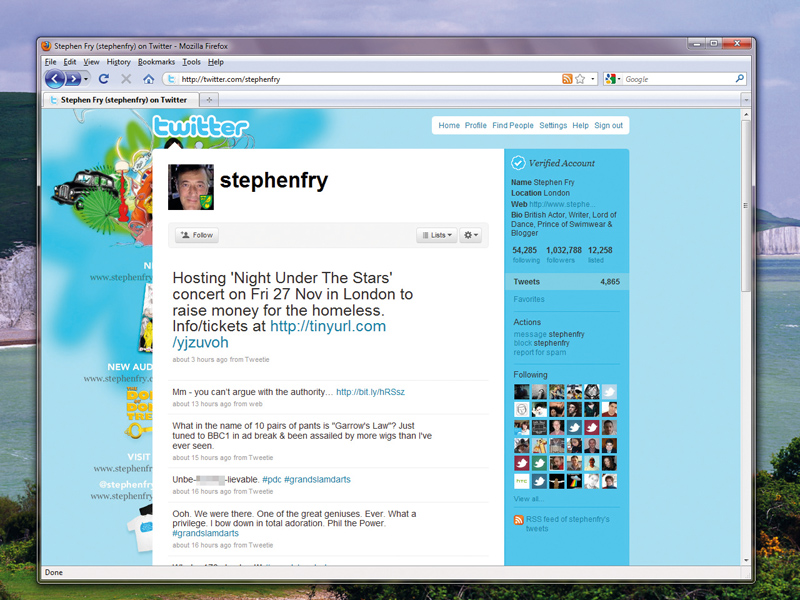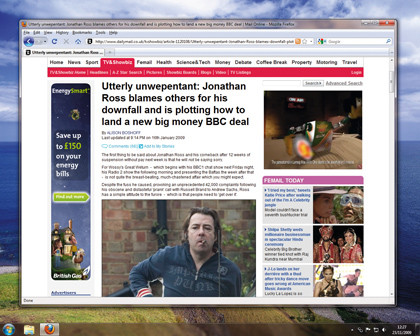
Could anything be more dangerous to the modern celebrity than Twitter? The media has always been ready to pounce on famous personalities' smallest mistakes, but Twitter lends its high-profile users a foghorn.
If Jonathan Ross (@Wossy) wasn't already in enough trouble for leaving lewd messages on Andrew Sachs' answering machine, his antics on Twitter made him an even juicier tabloid target.
"Utterly unwepentant" sniffed The Daily Mail after Ross wrote an update stating "Suspension is fun" on the micro-blogging service during the period that his shows were off-air. Another Mail headline branded the 49 year-old presenter "shameless" after he tweeted, "I am very polite in person. I'm just not great with answering machines."

DOUBLE EDGED SWORD: Tweets vanish quickly, but if a story erupts, those little messages can be a PR nightmare
And Ross isn't the only famous Twitter user to find themselves in hot water following a carelessly worded tweet. The BBC's technology correspondent Rory Cellan-Jones (@ruskin147) was asked via Twitter why he chose to omit Wordscraper from a piece on Facebook's word game applications. "'Cos i couldn't be bothered!" came the reply.
Cellan-Jones's response was promptly republished on a blog along with the withering comment, "Years from now, when British journalism has finally breathed its last, this phrase will be engraved on its tombstone."
However, Cellan-Jones seemed to be intrigued rather than embarrassed by the matter, using it as inspiration for a blog on the tricky business of working out what is and isn't appropriate to say on social-networking sites. "My throwaway remark has been turned into the basis for an indictment of the whole of British journalism," he commented. "[It's] a useful reminder that Twitter – like so many other online forums – is a public place, and what you say there may be used in evidence against you."
Get daily insight, inspiration and deals in your inbox
Sign up for breaking news, reviews, opinion, top tech deals, and more.
To tweet, to whom?
Most of the time, people don't see danger coming. "Because it's more immediate, people are perhaps thinking even less about what they do," says Iain Connor, a partner at technology specialist law firm Pinsent Masons. Tweets might have a short shelf life, he argues, "but that's not to say that sufficient damage can't be done in a short period of time".
One person who knows this better than most is basketball team owner Mark Cuban (@mcuban). Cuban owns the Dallas Mavericks and, after a game in March, he used Twitter to complain that an opposing player wasn't whistled for a foul. "How do they not call a tech on JR Smith for coming off the bench to taunt our player on the ground?" he fumed.
A few days later the NBA smacked him with a $25,000 fine. Still, the billionaire managed to see the funny side of his punishment, adding "Can't say no one makes money from Twitter now," as he paid up.
Mark Borkowski is a PR expert who has represented Michael Jackson, Eddie Izzard and Van Morrison. He says that Twitter is "dangerous for anybody", but that it poses particular risks for stars. "You're live all the time – no editing," he says. "[What someone] thinks about in the nanosecond that they're tweeting could become an enormous issue, and it's global."
No stars seem to have been permanently damaged by mis-tweeting yet, but it's possible, says Borkowski. "It depends what you say. If you make a racist or outrageous comment then it's very difficult to come back from."